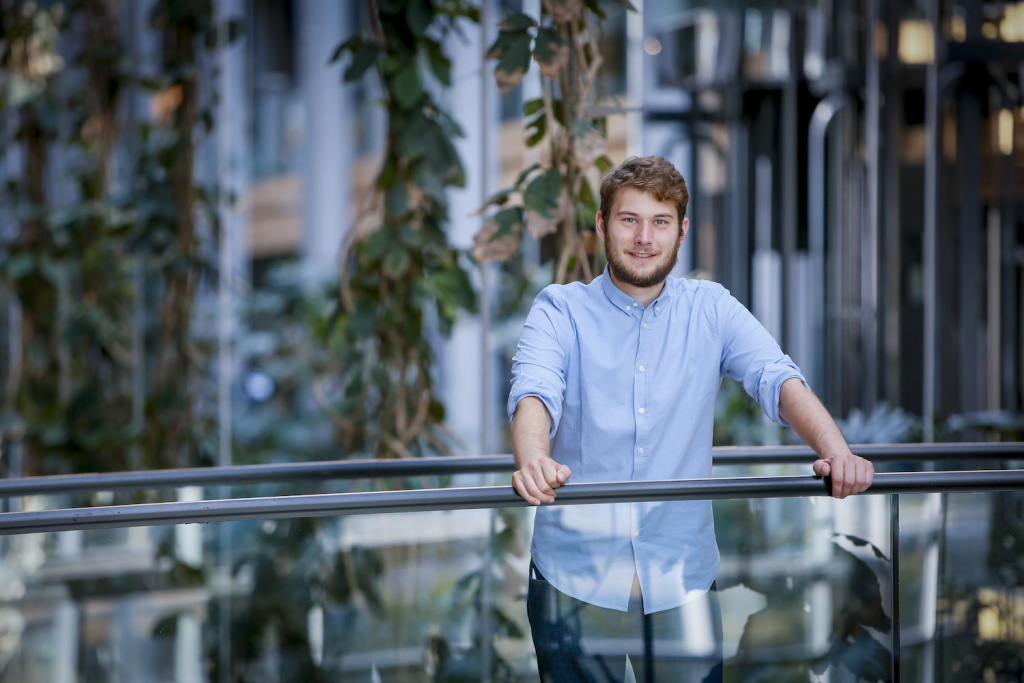Europe and the New Space Race
Following the Industry-Policy Session at EPSC2021, Livia Giacomini (INAF) spoke to Niklas Nienass, a Member of the European Parliament (MEP) for Germany in the Group of the Greens/European Free Alliance, about his vision for space science in Europe.
Read article in the fully formatted PDF of the Europlanet Magazine.
What is your personal vision of the European space industry, now and in the future?
Doing the economy the European way — for me that means an economy that is sustainable, fair and innovative. Furthermore, our strength is competitive smaller players, who are world leaders in very specialised segments. The space industry is one of the sectors where we have several big players and more and more smaller players. It is important to enable new players to enter the market and to lower entry barriers. A more diversified set of players, particularly smaller ones, is the key for the future of the European space industry.
What can politics do to regulate space? Both on a local basis for the 27 nations but also at the European scale?
We need to push for a democratic international space law that is able to guarantee that the Article One and Two of the Outer Space Treaty will be a reality for future generations. We need a space that is open for all humankind — and free of weapons. However, the first step to achieving a global space law is unity on a European level. We can only have global influence if we speak together. And the idea of a unified law will be much more credible if already proven in Europe.
So instead of 27 different national laws, we need one common European space law. We must and can prove that space knows no borders — but nevertheless is not a legal vacuum!
Can space be one of the sectors to invest in to overcome the pandemic crisis?
I think public investments in infrastructure and technology are definitely the way to go. And the space sector offers various possibilities, where public investments can generate major gains for citizens. With Horizon Europe, we have almost 100 billion Euros to spend on research in the next seven years. The question is: how do we make politicians understand the potential of space research and space industries? We have to show politicians how important space can be and to see a shift of perspective, so that people understand the space race that we are in and the potential that lies in space, especially New Space, in the future.

What can the scientific and academic community do to help the development of this sector?
Our society is dependent on space and a functioning satellite network. We use these technologies every day without thinking about it. I think that if awareness grows, a lot will be gained. Where does the GPS signal, the weather data, etc. come from? We should talk about it much more. We have to make people understand that this research is something that is ground-breaking, for humanity and for the way our society lives and functions.
How would you invest in education?
Unfortunately, way too often, educational success is based upon the wealth of the parents. We need to eliminate this throughout Europe and ensure that every child has the possibility to be interested and excited about research. We need all smart minds, and not just rich smart minds!
For space research, and especially planetary science, I envision a European university for space. What the International Space University in Strasbourg does is great. However, I envision a flagship project that combines all fields concerned with space and that really shows people this is the heart of European space sciences. I think, we can really combine questions and bring people together who think about space and space exploration in different terms and exchange ideas with each other and prosper. It could be the place, not just in Europe but in the world to accelerate the sciences behind space and space exploration. I think that would be a wise investment into education. This could bring young people close to the ideas of space to show them it is not a question of science fiction but really is science, something to work with and worth the investment of time and money
How is Europe fostering curiosity driven science?
Curiosity is only possible if the outcome is uncertain. However, curiosity is not in the politicians’ mindsets, because they always want to see timely results delivered. The resulting bureaucracy is not compatible with all the realities of how science works. We need an awareness that scientists deal with uncertainties — that is their daily bread. Basic research is often long-winded. Practical benefits often only emerge late and, if so, then perhaps only by chance. Curiosity needs freedom. Curiosity needs time. Curiosity is only possible with planning security and adequate funding. Our universities should be the place for such a curiosity.
Watch the full interview:
Banner image credit: European Union


